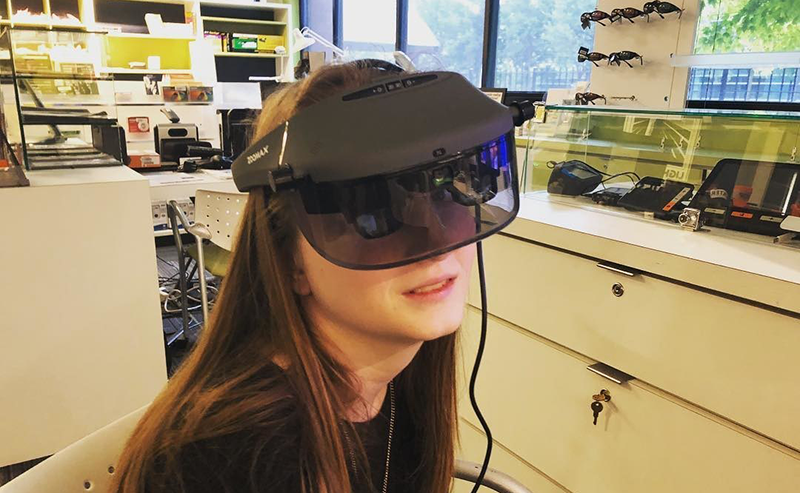Massachusetts-based Zoomax developed a novel device called Acesight, wearable electronic glasses that deliver true visual independence for the millions of people in the USA and worldwide who suffer from severe vision loss.
An estimated 1.3 billion people around the world live with some form of vision impairment, according to the World Health Organization (WHO). Approximately 80% of all vision impairment globally is considered avoidable.
Acesight electronic glasses employ Augmented Reality (AR) technology and features two full HD displays that float in front of each eye. A tracking auto focus camera between the eyes captures everything the user looks at and presents everything in magnified form up to 15x normal size. A hand-held controller allows the user to adjust magnification, colors and contrast, said a press release.
18-year-old Hayley Pelletier from Illinois suffers from various vision problems, including Bilateral Optic Nerve Hypoplasia (ONH), Esotropia, and Nystagmus. Hayley says of her experience with Acesight:
“I could see so many things that I couldn’t see before. I watched TV from a normal distance for the first time. When I looked at my grandfather and other people around me, I was able to see facial details from far away that I could not even see up close before. Normally all I can see – even close up – is a nose or a mouth. With Acesight, it feels like I have bionic sight.”
The novel device could help millions suffering from age-related Macular Degeneration, Glaucoma, and Diabetic Retinopathy. Normal every day activities such as watching television, viewing faces and objects, reading/writing, playing cards, or walking around in comfort are examples of things that become difficult when severe vision loss occurs.
Related NuEyes, Pico Interactive Partner Up for Next Gen Wearables for the Visually Impaired
“At Zoomax, we solve vision problems through creative technology,” says Vincent Lee, Chairman of Zoomax Technology Co., Limited, “Working together with UCLA and MIT, we developed a set of special sensors, micro-processors and algorithms, to form a combination of artificial vision technology to solve the problems associated with visual impairment. With Acesight, people with visual impairment can watch TV, work with the computer, see faces, and read books.”










